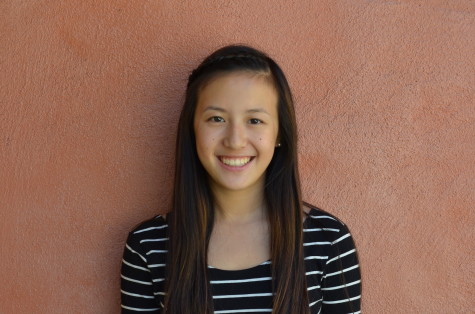Chemistry teacher attends science education conference in Puerto Rico

Educators from all over globe from places such as France, Nigeria, and Israel came together for one goal: to understand where misconceptions arise in student education while determining a way to improve teaching methods.
During spring break, chemistry teacher Rachel Freed attended the National Association for Research and Science Teaching (NARST), which was held in Rio Grande, Puerto Rico. At the conference, Freed attended lectures that were geared towards chemistry and technology.
Having spent the past two years researching and analyzing ways to enhance students’ understanding, Freed was excited to attend this event as a spectator rather than a presenter. Through several lectures and detailed discussions, she hoped to further her knowledge on the subject and pinpoint how misunderstandings about the curriculum of a class arise.
Freed was especially interested because the process of finding ways to prevent confusion about concepts taught in schools is meant to improve learning for students. In the past, she had worked very closely with students in classroom environments observing how to minimize uncertainty.
“We tried to develop a complete formative assessment system, a thorough way to draw out what students understand,” she said.
Through her previous research on six schools in Sonoma County, Freed was able to observe the success of the system named Diagnoser. Upon comparing the classes, one class that had incorporated the use of physical models and one that had not, she learned that the prior was far more successful.
Her research showed that confusion often came from an inability to see a situation, particularly in chemistry. Thus, Freed brainstormed methods to simplify the visualization of a chemical reaction for students.
For example, instead of simply carrying out a reaction through a lab, Freed wanted to expand the experience by demonstrating in another way as well: “hands on in two ways, hands on in terms of looking at a physical model, in addition to the hands on doing the chemical reaction,” Freed said.
According to Freed, though much research is done on learning and teaching, it is difficult for new ideas to be implemented in schools.
“A big theme in all the different research organizations that [researchers] have been talking about for 20 years is we have this huge body of research knowledge and it hardly ever gets down to practice in the classrooms,” Freed said.
Freed plans on presenting the new teaching methods she developed with her team to science teachers at the Upper School, hoping to implement it here as well.

Shannon Su is the Managing Editor and Executive News Director of Harker Aquila. She joined the program as a reporter her freshman year and has held many...


















![“[Building nerf blasters] became this outlet of creativity for me that hasn't been matched by anything else. The process [of] making a build complete to your desire is such a painstakingly difficult process, but I've had to learn from [the skills needed from] soldering to proper painting. There's so many different options for everything, if you think about it, it exists. The best part is [that] if it doesn't exist, you can build it yourself," Ishaan Parate said.](https://harkeraquila.com/wp-content/uploads/2022/08/DSC_8149-900x604.jpg)




![“When I came into high school, I was ready to be a follower. But DECA was a game changer for me. It helped me overcome my fear of public speaking, and it's played such a major role in who I've become today. To be able to successfully lead a chapter of 150 students, an officer team and be one of the upperclassmen I once really admired is something I'm [really] proud of,” Anvitha Tummala ('21) said.](https://harkeraquila.com/wp-content/uploads/2021/07/Screen-Shot-2021-07-25-at-9.50.05-AM-900x594.png)







![“I think getting up in the morning and having a sense of purpose [is exciting]. I think without a certain amount of drive, life is kind of obsolete and mundane, and I think having that every single day is what makes each day unique and kind of makes life exciting,” Neymika Jain (12) said.](https://harkeraquila.com/wp-content/uploads/2017/06/Screen-Shot-2017-06-03-at-4.54.16-PM.png)








![“My slogan is ‘slow feet, don’t eat, and I’m hungry.’ You need to run fast to get where you are–you aren't going to get those championships if you aren't fast,” Angel Cervantes (12) said. “I want to do well in school on my tests and in track and win championships for my team. I live by that, [and] I can do that anywhere: in the classroom or on the field.”](https://harkeraquila.com/wp-content/uploads/2018/06/DSC5146-900x601.jpg)
![“[Volleyball has] taught me how to fall correctly, and another thing it taught is that you don’t have to be the best at something to be good at it. If you just hit the ball in a smart way, then it still scores points and you’re good at it. You could be a background player and still make a much bigger impact on the team than you would think,” Anya Gert (’20) said.](https://harkeraquila.com/wp-content/uploads/2020/06/AnnaGert_JinTuan_HoHPhotoEdited-600x900.jpeg)

![“I'm not nearly there yet, but [my confidence has] definitely been getting better since I was pretty shy and timid coming into Harker my freshman year. I know that there's a lot of people that are really confident in what they do, and I really admire them. Everyone's so driven and that has really pushed me to kind of try to find my own place in high school and be more confident,” Alyssa Huang (’20) said.](https://harkeraquila.com/wp-content/uploads/2020/06/AlyssaHuang_EmilyChen_HoHPhoto-900x749.jpeg)


